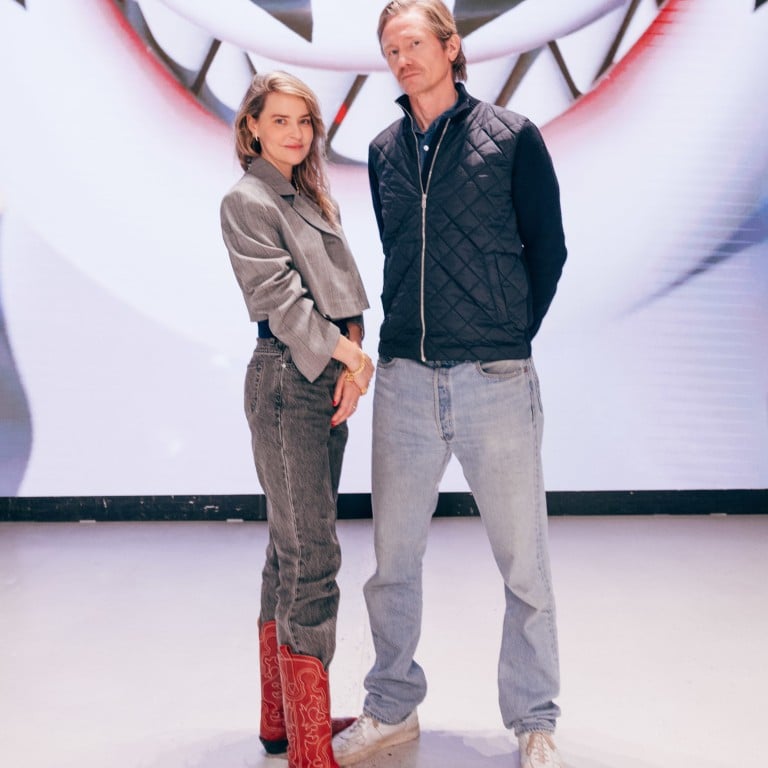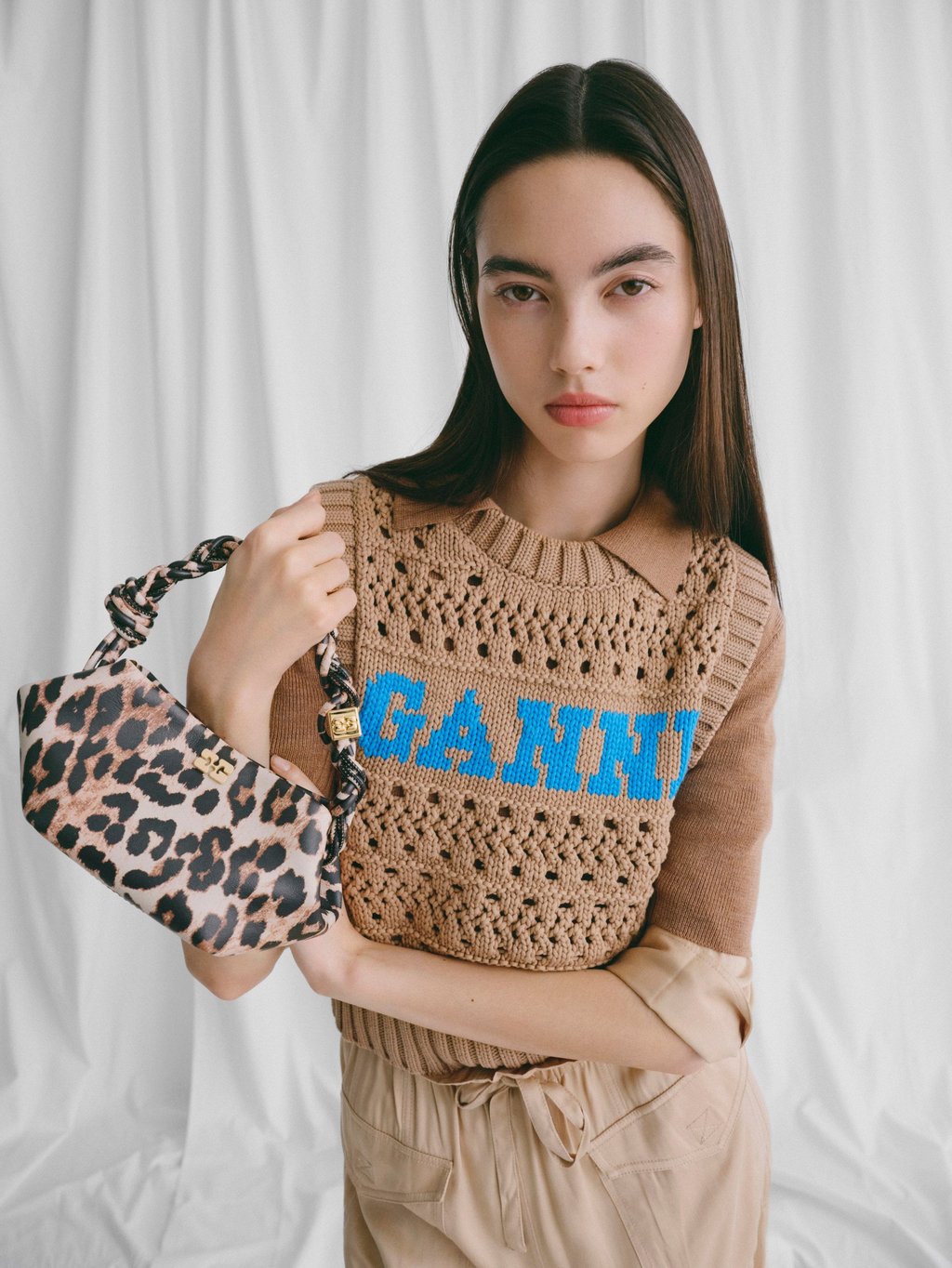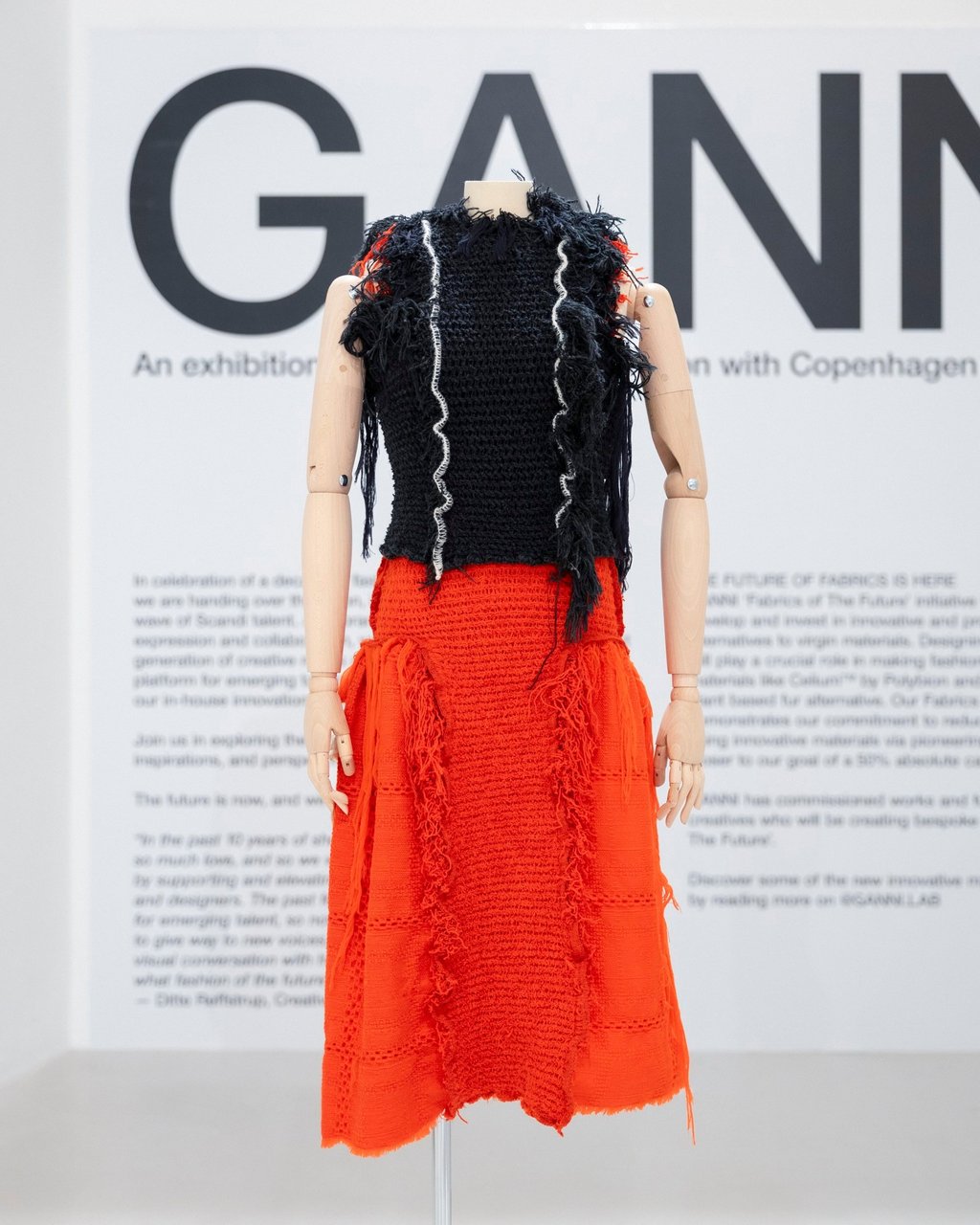Growing Ganni: meet the couple behind Denmark’s kooky, sustainable fashion brand – Ditte and Nicolaj Reffstrup talk dressing the Gen Z ‘Copenhagen girl’ and making handbags from biowaste

- The hip Scandinavian brand is now making its signature Bou bag out of ‘mango slime’ in a bid to inject sustainability into the luxury fashion industry
- Since taking over the then-cashmere house in 2009, husband and wife Ditte and Nicolaj Reffstrup have grown Ganni into one of Northern Europe’s hottest labels, with offbeat, feminine styles that scream mobility, freedom and empowerment
“It’s almost alive,” Nicolaj Reffstrup says of his wife Ditte’s handbag.
The accessory, sat on our table and fashioned out of a pebbled leather-like material in a yellow-green hue, is not made with cowhide, but rather biowaste from harvested mango and other fruit. The waste is fermented, “comes out almost as a slime”, and is hardened before undergoing a tanning process, he reveals. This particular model hasn’t been coated so has an oxidised and aptly organic, marbled finish.
We’re in an old church building run by Ganni, the cashmere company the Reffstrups took over in 2009 and grew into one of Denmark’s hottest labels, known for quirky, colourful, feminine wares. For Copenhagen Fashion Week (CFW), the space has been transformed into the brand’s showroom and exhibition space. Open to the public, it was thronged by Gen Z fans as well as fashion editors, some of whom had dined there the night before.

By day, however, the church houses Ganni’s latest collection for buyers to view, along with a photogenic cafe. There’s also “Future, Talent, Fabrics”, an exhibition of local up-and-coming designers, as well as the literal fruits of work by the business’ Fabric of the Future initiative – Ditte’s mango leather rendition of the hit Bou bag included.
“We’re in a funny place: big brand, medium business,” Nicolaj tells Style, recounting a recent trip the couple took to Africa, where they met fellow visitors from around the globe and were struck by the extent to which Ganni’s reputation preceded its actual size.
“They were star-struck when they met Ditte and told us to open stores in the US and Mexico. But we’re still doing €170 million [in sales, US$185 million] per year. It’s a great business, don’t get me wrong, but it’s not that much.”

He is, in part, being humble. Fifteen years on, the business the husband-wife duo now respectively lead as CEO and creative director has become one of Danish fashion’s most notable exports, employing some 500 people worldwide. This year, the business is looking to amp up its presence in mainland China, where the brand already runs eight boutiques.
Ganni is perhaps best known for being the mid-market, unofficial uniform of the Gen Z Danish girl and those who aspire to dress like her. But this prototype was amorphous when the Reffstrups took the leap. “It took us a long time to figure out who she truly was – you go to Paris and LA, and find bigger personas,” says Nicolaj. Ultimately, the duo rooted their Danish style in mobility, freedom and empowerment – values that in a country on the forefront of gender equality and with its capital, Copenhagen, famously bike-friendly, resonate with visitors and locals alike.